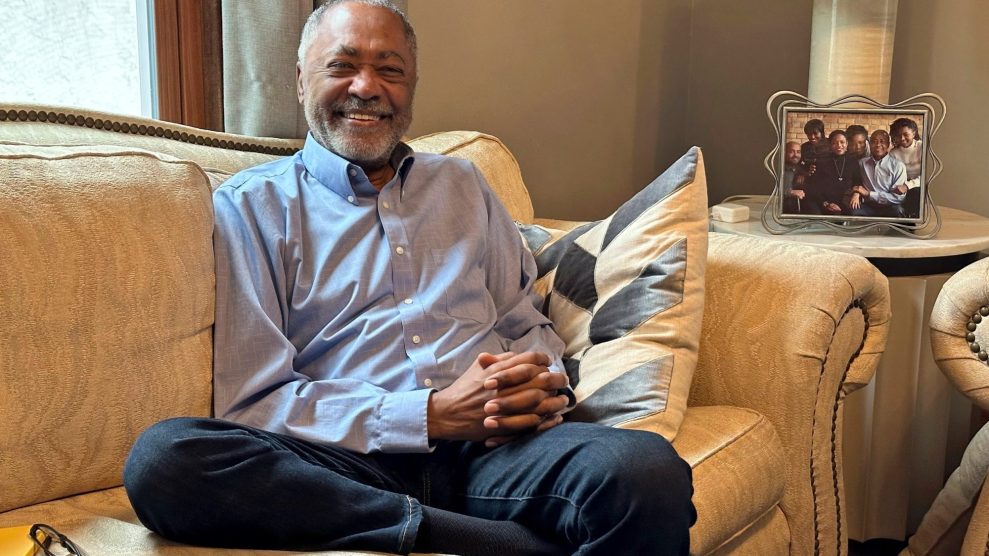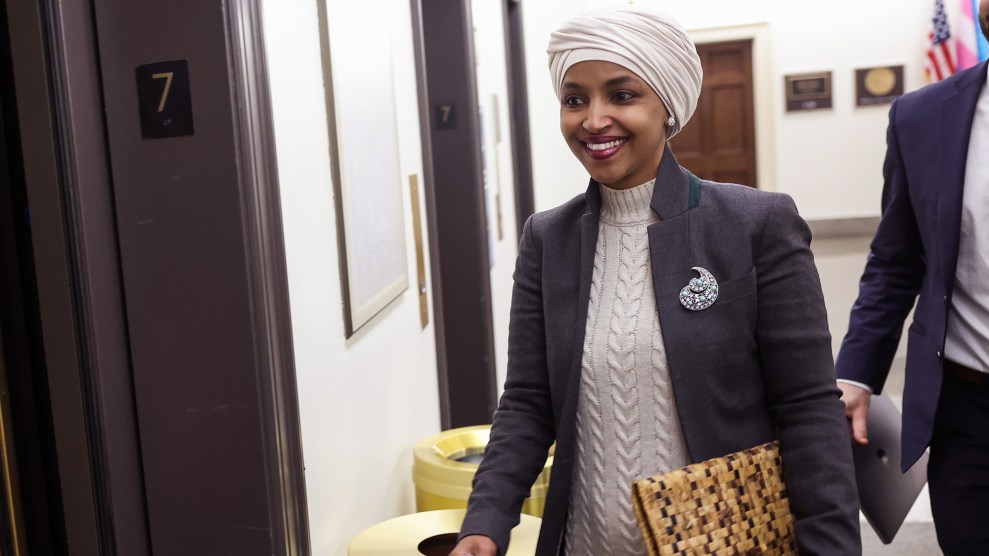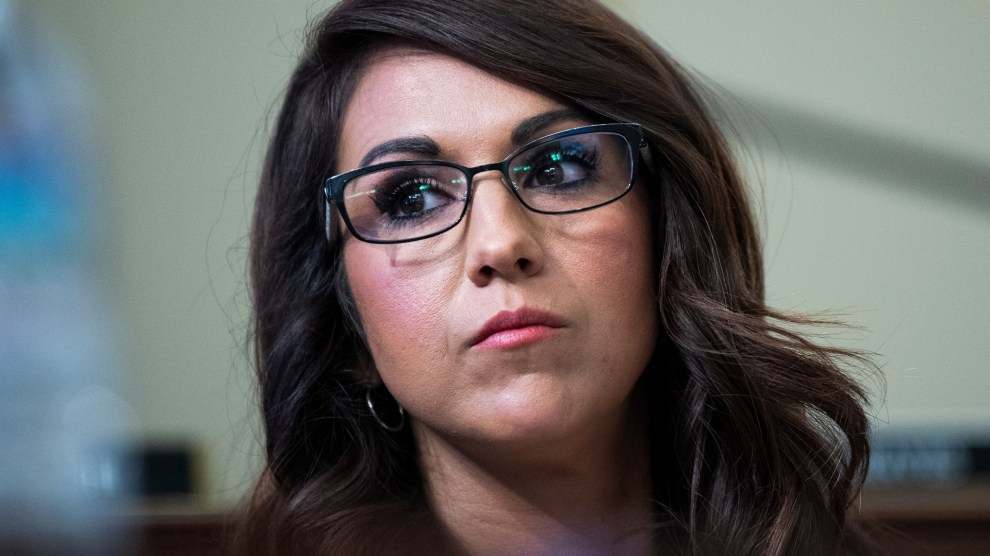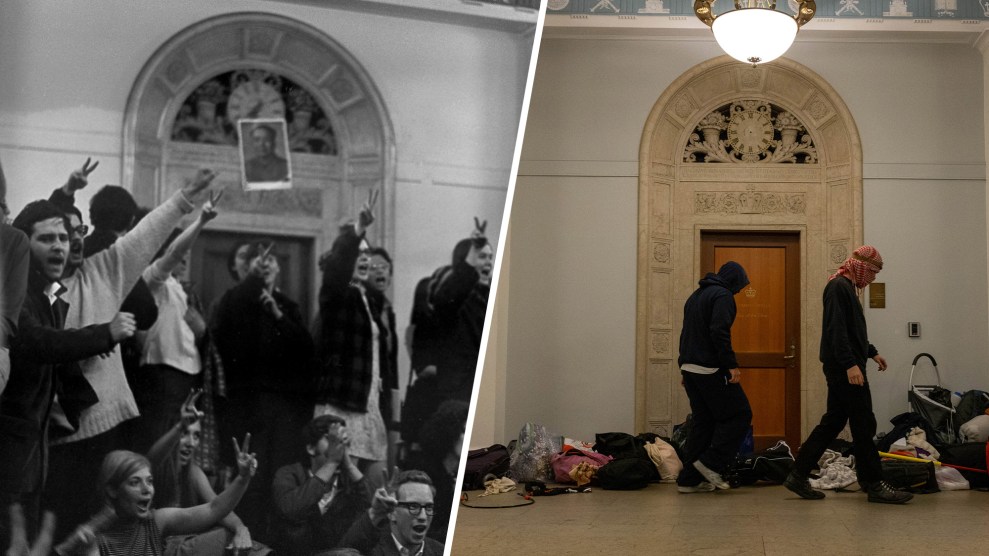
Former Minneapolis City Council member Don Samuels poses at his home in Minneapolis earlier this month.Steve Karnowski/AP
Former Minneapolis City Council member Don Samuels, one of the primary challengers to Rep. Ilhan Omar (D-Minn.), mentioned a reason he thinks she’s unfit for office: Omar is allegedly “not cute enough.”
During his appearance last week on The Break Down, a weekly politics podcast, one of the co-hosts asked Samuels to elaborate on his critiques of Omar’s alleged “lack of town halls [and] constituent services” (you can hear the question start at about the 22-minute mark). Here’s how he responded:
To see government not be responsive like that, to the people that pay them, it is offensive to me. And to not be responsive and available to those people, to meet with them and find out what their concerns are and to answer their tough questions? To not get back to people on the phone? Who do you think you are? And who do you think you’re working for? You’re not cute enough, you don’t dress well enough, nothing about you is attractive enough to overcome that deficit.
Omar responded to Samuels’ comments in a post on X, calling them “beneath the dignity of any adult, let alone someone seeking public office” and “reminiscent of the worst kinds of lies and misogyny that we are hearing from people like Donald Trump, who think they can say anything about women and get away with it.”
This is beneath the dignity of any adult, let alone someone seeking public office. It is reminiscent of the worst kinds of lies and misogyny that we are hearing from people like Donald Trump, who think they can say anything about women and get away with it. Like Trump, instead of… https://t.co/9j7BK3UehX
— Ilhan Omar (@IlhanMN) November 29, 2023
Omar’s senior advisor also disputed Samuels’ claim about her alleged lack of town halls, writing on X that the congressperson “has held multiple town halls every quarter this year.” (An Eventbrite page advertising Omar’s town halls appears to show she has held six this year, five of which were in person.)
In a statement provided to Mother Jones, Samuels—who nearly ousted the three-term congresswoman as the Democratic House nominee in the 2022 primary, coming up just about 2,500 votes short—said Omar’s repost mischaracterized his comments, which he claims weren’t about her specifically but were instead about “politicians who talk the talk versus walk the walk.”
“In listening to my full answer, it’s abundantly clear that I’m talking broadly about politicians who value their own celebrity over the needs of their constituents,” Samuels added. “We shouldn’t be surprised Rep. Ilhan Omar saw herself in my response.”
When he announced his challenge to Omar earlier this month, Samuels—who has also come out swinging against Omar’s critiques of U.S. support for Israel and policing in Minneapolis—pointed to last year’s contest, claiming that that race “laid the foundation for a rematch that holds the promise of a better future for our district.” But that was also before he insinuated that the incumbent’s appearance shapes her ability to govern.
Sexism isn’t a rarity in politics, nor is it a partisan problem: Republican presidential candidate Vivek Ramaswamy was accused of misogyny earlier this month after dismissing former U.N. Ambassador Nikki Haley and Florida Gov. Ron DeSantis as “Dick Cheney in three-inch heels” at the last Republican debate. Whether sexism is enough to shape an election’s outcome, though, is another question: Trump, of course, was still elected after a leaked tape showed him bragging about sexual assault.
















